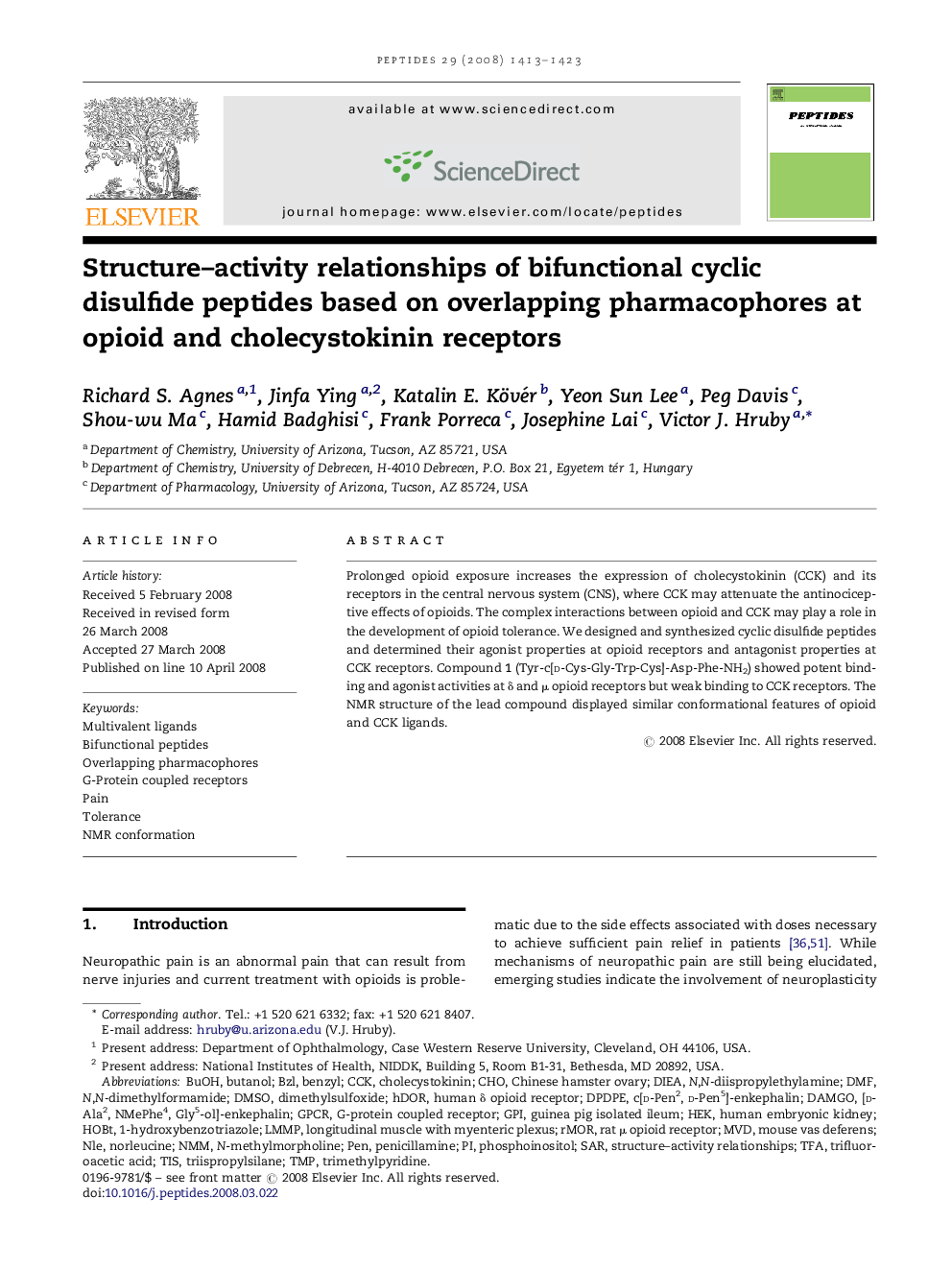| Article ID | Journal | Published Year | Pages | File Type |
|---|---|---|---|---|
| 2007400 | Peptides | 2008 | 11 Pages |
Abstract
Prolonged opioid exposure increases the expression of cholecystokinin (CCK) and its receptors in the central nervous system (CNS), where CCK may attenuate the antinociceptive effects of opioids. The complex interactions between opioid and CCK may play a role in the development of opioid tolerance. We designed and synthesized cyclic disulfide peptides and determined their agonist properties at opioid receptors and antagonist properties at CCK receptors. Compound 1 (Tyr-c[d-Cys-Gly-Trp-Cys]-Asp-Phe-NH2) showed potent binding and agonist activities at δ and μ opioid receptors but weak binding to CCK receptors. The NMR structure of the lead compound displayed similar conformational features of opioid and CCK ligands.
Keywords
Related Topics
Life Sciences
Biochemistry, Genetics and Molecular Biology
Biochemistry
Authors
Richard S. Agnes, Jinfa Ying, Katalin E. Kövér, Yeon Sun Lee, Peg Davis, Shou-wu Ma, Hamid Badghisi, Frank Porreca, Josephine Lai, Victor J. Hruby,
